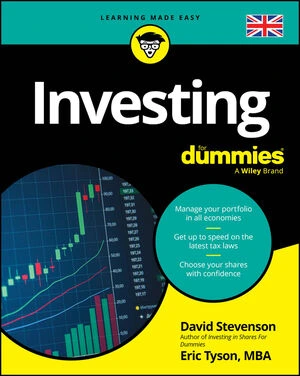If you're buying or selling shares then you'll inevitably be routed through a dark pool at some point and your trades may well be executed there. Your broker's expertise and the services that he provides are now one of the most important parts of your investment process.
Figure out what you want to do with your investments and what type of relationship you need with a broker. Deciding on a broker depends on how hands-on you want to be and how much control you want to have over your orders. If you just want to push the button and execute your order then you need a broker you can trust.
If, on the other hand, you prefer to do things yourself then you need a broker who offers you as much control and decision making as possible when it comes to the execution of your trade.
When you talk with your broker, ask him these questions to ensure that he's working for your best interests:
Do you know the different dark pools? Your broker should know the main dark pools. This question will tell you whether your broker is up to speed on the current market and has an understanding of who the major operators are. Stock trades are regularly routed through dark pools; if a broker hasn't got any idea about dark pools, it's a sign of incompetence.
After asking your broker what he knows about the different dark pools, you can also do your own investigation. Know the biggest dark pools by name. Read recent news reports about them and find out how they execute their orders and who they allow to operate in their pools. Don't just believe their web pages and marketing materials. There have been lawsuits accusing dark pools of misleading clients, so make sure that you know the good guys from the bad guys.
The good guys can become the bad guys overnight, so regularly follow any developments in the dark pool market via the media. If a dark pool operator is fined or is under investigation for offences that have negatively impacted its clients, you should discuss the matter with your broker and make sure that he doesn't route your trades through that particular dark pool until the issue with the dark pool is resolved.
What markets do you trade in? Discuss with your broker what dark pools and what displayed markets he executes your trades on. Don't be afraid to ask straight and difficult questions and see what your broker says. If he can't give you clear answers then the broker serving you either doesn't know his job well enough or is hiding something from you.
Does the dark pool operate a maker-taker fee? A maker-taker fee is when some traders (often high frequency traders) are paid a fee to post orders on the book, which adds liquidity (maker fee), or to trade against existing orders in the book, which takes away liquidity (taker fee). If the dark pools your broker uses operate a maker-taker fee then high frequency traders are likely to be operating in that dark pool. Exchanges make money when trades are executed; that's why sometimes they offer financial incentives to certain traders to either post orders or to execute against existing orders already in the order book.
If you're dealing in small share lots then it may be fine for you to use the standard at-market orders, because they're unlikely to have an impact on the price. If you're trading large sizes then you may be better off trading in another dark pool because the chances are high that a high-frequency-trading algorithm will discover your larger order and trade against it.
Do you offer direct market access? Direct market access means the ability to enter your orders directly into a market venue without having to go through a broker or intermediary. If you want to operate your trades yourself, you need direct market access. This gives you a choice of how and where to route your orders.
What special order types do you have access to? If you manage your own orders then you'll need to know all the different special order types available and know exactly how they work in the market. Don't just take your broker's word; make sure that you research the different types of special order types and cross-reference with what your broker tells you.
What is your trading portal? A trading portal is what you have in front of you on your computer screen to enter and follow your trades. Get to know the trading tools at your disposal and test to see how they work. Check to see whether the broker's trading portal is intuitive and easy to use.
Will you answer my dark pool queries in writing? Don't be afraid to ask your broker for confirmation in writing on any issues you have with how he operates in dark pools and routes trades. Getting everything in writing is important because it gives you proof that you've discussed the matter of dark pools with your broker and made demands on the broker as to how he should act with your orders when dark pools are involved in one of your trades. If a situation arises in which a dark pool has acted unfairly to certain market participants (as has happened before) then you at least have the possibility of redress.






